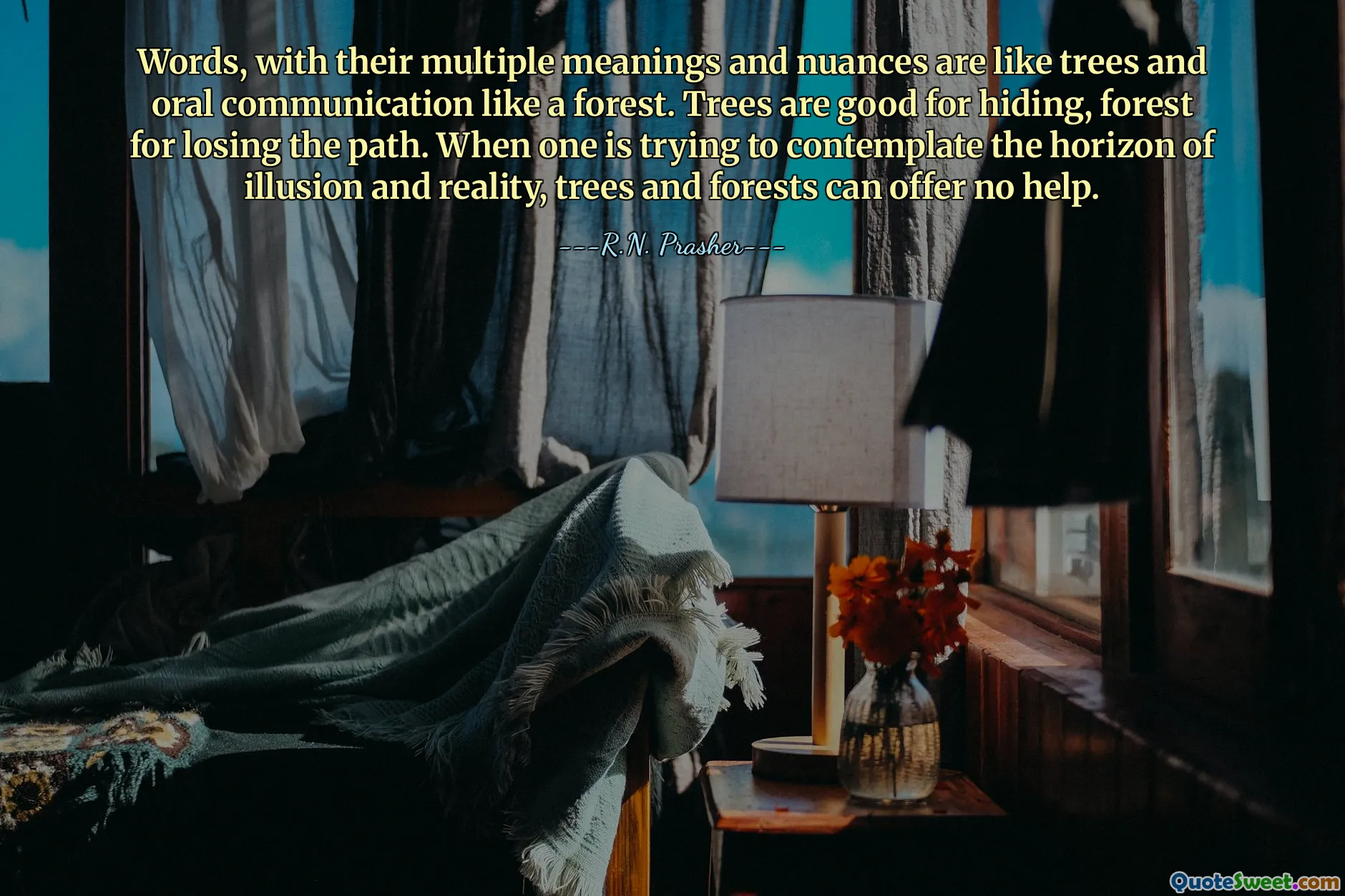
Words, with their multiple meanings and nuances are like trees and oral communication like a forest. Trees are good for hiding, forest for losing the path. When one is trying to contemplate the horizon of illusion and reality, trees and forests can offer no help.
This quote by R.N. Prasher provides a vivid metaphor comparing words and communication to trees and forests, respectively. It suggests that while individual words (trees) hold multiple meanings and layers, when combined in oral communication (the forest), they offer greater complexity that can both conceal truths and confuse understanding. The imagery of trees as hiding spots and forests as places where one can lose their way highlights the dual nature of language: it can protect ideas and thoughts but may also obscure or bewilder the seeker of deeper understanding.
In reflecting on this, it's clear that language, despite being our primary tool for expressing thoughts and perceptions, has inherent limitations. When we attempt to discern the line where illusion ends and reality begins, the quote intimates that neither the microscopic view of words alone nor the macroscopic spread of communication can guide us reliably. Both may serve as decorations around knowledge or as obstacles preventing access to genuine insight.
This perspective challenges the common belief that language is always a clear and effective conduit for truth. It forces us to consider other ways of knowing and perceiving beyond verbal expression — perhaps through experience, intuition, or silent contemplation. The horizon of illusion and reality, a metaphor for understanding what is truly real versus what is a product of perception, remains elusive, suggesting a humility before the complexity of existence that words, no matter how rich in nuance, cannot fully encompass.
In this way, the quote prompts an appreciation of the limitations of language and invites us to look beyond mere words to reach deeper comprehension.











